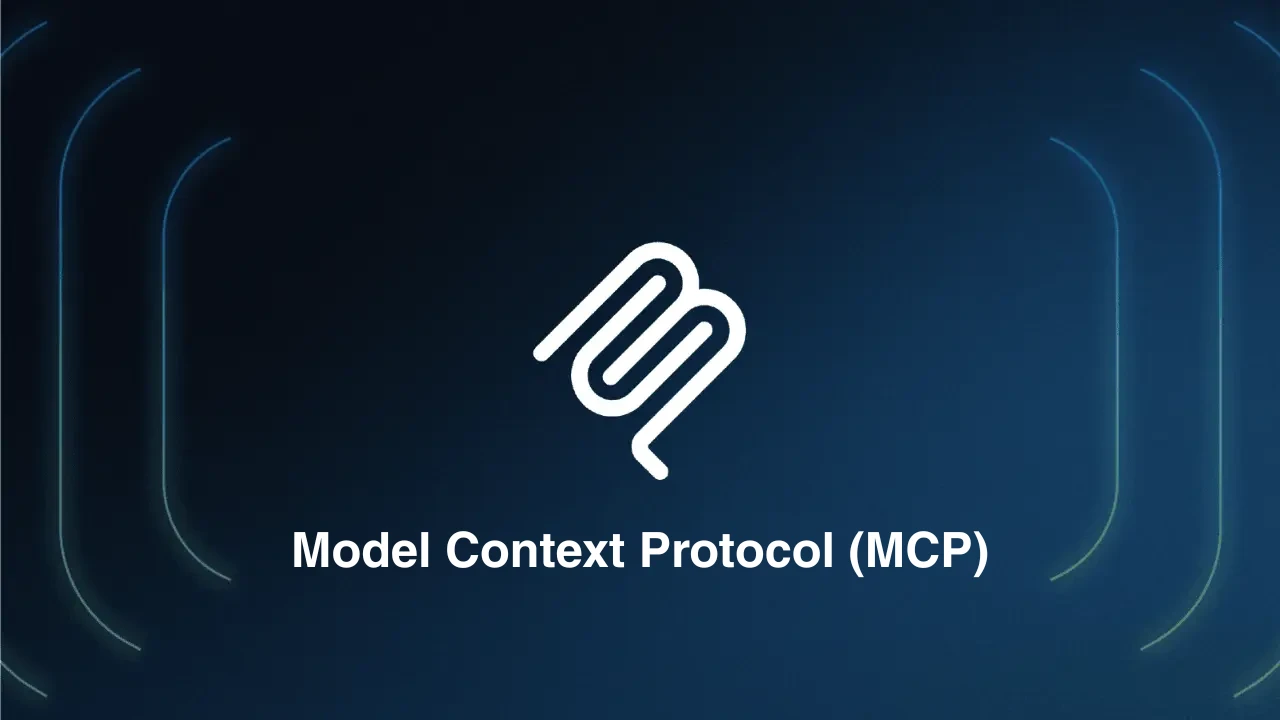
Enhancing AI Agent Workflows with Model Context Protocol (MCP)
The Model Context Protocol (MCP) is revolutionising how AI agents interact with tools and data, transforming them from reactive tools into proactive participants in business systems. MCP enables more informed decision-making and streamlined operations by standardising how AI models connect with external data sources and tools.
In this article, you will learn:
- How MCP enhances AI agents’ interaction with tools and data
- The technical architecture and components of MCP
- The impact of MCP on enterprise AI integration
Let’s explore how MCP is shaping the future of AI agent workflows.
What is the Model Context Protocol (MCP)?
The Model Context Protocol (MCP) is an open standard developed by Anthropic to enable secure, two-way connections between AI-powered tools and external data sources. It provides a standardised way for AI models to access and interact with diverse data sources and tools, enhancing their capabilities within enterprise environments.
MCP operates on a client-server architecture, where developers can expose their data through MCP servers or build AI applications (MCP clients) that connect to these servers. This setup allows AI agents to retrieve, process, and leverage information across various systems, leading to more informed decision-making and streamlined operations.
How MCP Enhances AI Agent Workflows
Traditionally, AI agents have been reactive, responding to inputs without the ability to proactively access or manipulate external data sources. MCP changes this by allowing AI agents to interact with tools and data more effectively, transforming them into proactive participants in business systems.

With MCP, AI agents can:
- Access External Data Sources: MCP enables AI agents to connect with various data sources, such as databases, APIs, and file systems, to retrieve and process information as needed.
- Perform Actions: Beyond data retrieval, MCP allows AI agents to perform actions, such as updating records, sending notifications, or triggering workflows, based on the information they process.
- Maintain Context: MCP provides a structured framework for AI agents to maintain context across interactions, ensuring consistency and relevance in their operations.
By leveraging MCP, AI agents can operate with greater autonomy and effectiveness, leading to improved efficiency and decision-making within enterprise environments.
Technical Architecture of MCP

MCP’s architecture is designed to standardise the integration of data and tools with AI agents. It consists of three primary components:
- MCP Host: The central component that manages the communication between AI agents and external tools or data sources.
- MCP Client: The AI application or agent that initiates requests and processes responses from the MCP server.
- MCP Server: The interface that exposes data sources and tools to the MCP client, handling requests and returning appropriate responses.
MCP uses JSON-RPC 2.0 for communication, allowing for structured and standardised message exchanges between clients and servers. This setup ensures that AI agents can seamlessly interact with various tools and data sources without the need for custom integrations
Impact on Enterprise AI Integration

The adoption of MCP has significant implications for enterprise AI integration:
- Simplified Integration: MCP provides a standardised protocol for connecting AI agents with diverse data sources and tools, reducing the complexity and time required for integration.
- Enhanced Security: By defining clear communication protocols and interfaces, MCP enhances the security of AI agent interactions with external systems.
- Scalability: MCP’s standardised approach allows enterprises to scale their AI agent deployments more effectively, as new tools and data sources can be integrated with minimal effort.
- Improved Decision-Making: With access to real-time data and the ability to perform actions, AI agents can make more informed decisions, leading to better outcomes for the business.
Overall, MCP is transforming the way enterprises deploy and utilise AI agents, making them more proactive, efficient, and integrated within business systems.
Conclusion
The Model Context Protocol (MCP) is a game-changer in the realm of AI agent workflows. By standardising the way AI agents interact with tools and data, MCP empowers them to become proactive participants in business systems, leading to more informed decision-making and streamlined operations.
As enterprises continue to adopt and integrate AI agents into their workflows, MCP will play a crucial role in ensuring these agents operate effectively and securely. By embracing MCP, businesses can unlock the full potential of AI agents, transforming their operations and driving innovation.
For those interested in implementing MCP within their organisations, exploring the official documentation and resources provided by Anthropic is a great starting point
You May Also Like
Cloud Solutions for Startups
Ut enim ad minim veniam, quis nostrud exercitation ullamco laboris nisi ut aliquip ex ea commodo con
The Hidden World of AI: Prompt Engineering and Jailbreaking
Ut enim ad minim veniam, quis nostrud exercitation ullamco laboris nisi ut aliquip ex ea commodo con
What Real Cloud Transformation Looks Like in 2025
Ut enim ad minim veniam, quis nostrud exercitation ullamco laboris nisi ut aliquip ex ea commodo con




